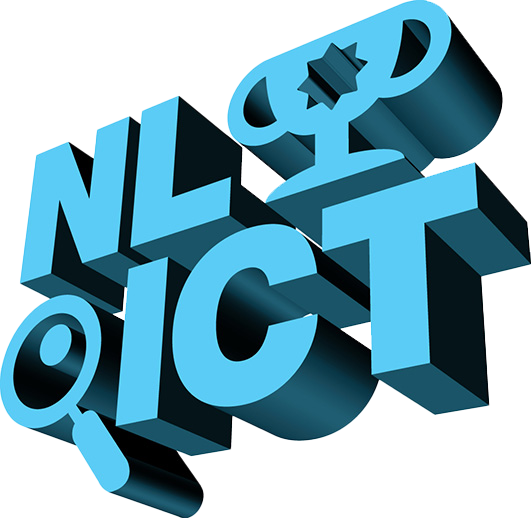Over the years 14 ICT researchers have received the Netherlands Prize for ICT Research.
Being awarded this prestigious prize increased their visibility, which in some cases helped to open doors to new career opportunities. In addition to this, the prize winners value the freedom to spend the associated 50,000 euros of prize money to their research in any way they see fit.
Since 2011, the Netherlands Prize for ICT Research is awarded annually to a scientific researcher who has carried out innovative research or is responsible for a scientific breakthrough in computer science. The prize is intended as a tribute to the prize-winner as well as a promotion of the computer science field.
Boosting careers
‘The prize was instrumental for my promotion to full professor at TU/e, which meant that I could stay there and did not have to leave to another institution to make that step,’ comments the first ever ICT Prize winner Bettina Speckmann, who received the annual accolade back in 2011. Also Felienne Hermans, who was awarded the national recognition exactly ten years later, calls the recognition instrumental in her appointment as full professor. ‘The award put me on the front page of NRC. This alerted the VU Amsterdam (where I was working one day a week as a lecturer), who decided to offer me a full professorship. That might have happened anyhow, of course, but I can’t help but feel that this award speeded things up significantly.’
Also Ivano Malavolta, despite having been awarded the prize only one year ago, experiences beneficial effects when it comes to his career chances: ‘Recently, I have been promoted, and I believe that the ICT-wide recognition I got by receiving the prize played a strong role in this decision. And I do not have the hard numbers, but I am relatively confident that since last year my studies received more citations from colleagues and I have been invited to a number of national and international research proposals for acquiring research grants. What’s more, being awarded this prize gave a strong boost to my self-esteem. This is especially important in today’s academic world, where several (very good) researchers suffer from an impostor syndrome.’
“Free money”
The Netherlands Prize for ICT Research comes with €50.000 prize money, awarded jointly by the Netherlands ICT research platform IPN and NWO through the Royal Holland Society of Sciences and Humanities (Koninklijke Hollandse Maatschappij der Wetenschappen). Until 2020, the prize was funded by The Dutch Science Council NWO. Since 2022 IPN provides the prize money, which, in the period 2022-2026, is made possible with the help of a generous gift from COMMIT\.
‘I still have about more than half of the money that was awarded to me, it is a highly treasured nest egg,’ says Bettina Speckmann. ‘I use this money in the following way: There is some initiative – a workshop, young students wanting to attend a conference, an implementation challenge, a video production, generally something interesting or creative where it is not clear how it could be funded. Then I say: “Let’s just get started with this, I can cover the costs from my award if we cannot find any other funding”. This is speeding things up tremendously; things can get under way that would otherwise wait for months (or even years) for funds to be approved. Funding with no strings attached is so rare in the Dutch funding landscape. Having this award money has really helped me and my students to do extra impactful work and organise things that would otherwise not have been possible.’
2018 Winner Joost Batenburg used the prize money to establish and expand a dedicated CT lab at CWI. ‘Because this so-called FleX-ray lab was a pioneering project, it was difficult to find funding before it even started. “Free money” is crucial for taking these kinds of steps. Within the lab, we carried out advanced CT-scans for a variety of research collaborations with partners such as Naturalis (scanning paleontology objects), Rijksmuseum (scanning works of art), and creating demonstrators to attract industry. As the FleX-ray lab was not budgeted in running research projects, the ICT Prize made it possible to leverage on these projects and create concrete demonstrations of developed technologies in CWI’s in-house lab. This enabled the Computational Imaging group at CWI to carry out groundbreaking research on algorithms for real-time 3D tomography.’
Other prize winners decided to spend the money on equipment or personnel, for example to support the fourth year of a PhD student whose first 3 years of contract are covered by an EU project, to extend contracts of postdocs, or to allow conference travels, either by themselves or by their students.
All in all, the 14 researchers who have been awarded the national recognition so far have been grateful for the opportunities that arose from it. As 2017 winner Peter Schwabe puts it: ‘Personally, the prize meant and still means a huge honour for me and it was a great experience to receive it during ICT.OPEN and to be able to present my research during the ceremony.’ Cristiano Giuffrida, the awardee of 2023, concludes: ‘I think the ICT prize is a great distinction and I hope it will never go away. I’m proud to be one of the recipients.’
